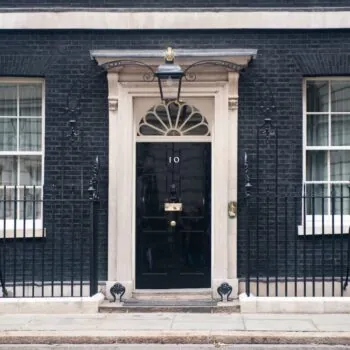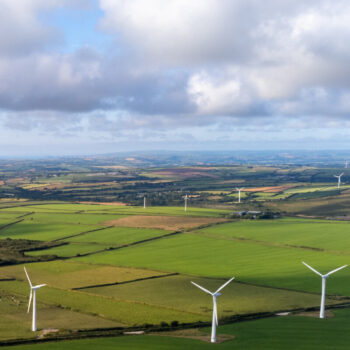- The UK’s 2024 Spring Budget fails to put green growth at its heart, squandering an opportunity to put in place a credible, long-term growth plan for the UK.
- No new support to help households reduce their energy bills.
- No Net Zero Investment Plan, that business has been crying out for.
- An increase in oil and gas profits tax but huge subsidies for the declining oil and gas industry, undermining investment in the clean energy transition.
- Support for electricity network reform and an enhanced pot of money for renewable capacity auctions – but a failure to invest in energy efficiency, flexibility and long-term storage to bring down power bills for households.
Overall assessment
On the Spring Budget overall, Ed Matthew, E3G Campaigns Director, said:
“This Government has no credible plan for growth. Uncertainty on how the UK will decarbonise industry, homes, power and transport has led to chronic under-investment. This is compounded by a lack of green tax breaks, low levels of public investment and not having a long-term Net Zero Investment Plan. The UK is being outcompeted on clean tech investment by the US, Europe and China as a result. The UK economy is flat-lining and this Budget will fail to bring it back to life.”
Clean energy
On electricity reform, Susanna Elks, E3G Senior Policy Advisor, UK Electricity Transition, said:
“Tucked away in the small print of the Spring Budget, the government has announced reforms to electricity networks and a beefed-up budget for the next wave of offshore wind projects, through the Contracts for Difference (CfD) renewables auction. This suggests that the Conservatives can’t ignore that low-cost renewables are the growth engine of the future and can help cut bills. Nonetheless, there are concerns this pot may still be insufficient to make up for last year’s failed renewables auction round.
While today’s announcement is welcome, the UK still lacks an overarching plan to create a clean low-cost electricity system– with a failure to provide support for hydrogen-to-power, long-term storage and demand side flexibility. These are key technologies which could help end our addiction to expensive polluting gas, while reducing bills for consumers.”
Oil and gas
In response to the announcement that the windfall tax on oil and gas producers would be extended by one year, to 2029, while generous investment allowances will remain, Beth Walker, E3G Senior Policy Advisor, said:
“The Government has already caved in to the oil and gas lobby with massive subsidies for oil and gas producers, which don’t lower energy bills and keep households hooked on expensive gas. This extension of the windfall tax does nothing to redress that balance. Any benefit in additional revenue will be instantly wiped out by an incoherent energy strategy that scares off investors who are now convinced that the UK is not serious about the clean energy transition. Rather than funding tax cuts, any revenue raised from oil and gas profits should be ring-fenced to address fuel poverty and support green industries – particularly in the North Sea.”
Green finance and the UK’s net zero future
On green finance, Heather McKay, E3G Senior Policy Advisor in sustainable finance, said:
“With growth of UK green industries far outstripping our lagging economy, it seems obvious that more investment, not less, in UK net zero is essential for growth. However, despite warm words in last year’s Green Finance Strategy, today’s budget marks yet another failure to deliver on the critical market reforms – like extending transition plan requirements and a science-based UK green taxonomy – needed to unlock billions in private investment for innovative, high productivity, green sectors across the UK.”
Green homes
On energy efficiency programmes, Juliet Phillips, E3G Programme Lead, UK Energy Transition, said:
“Upgrading our cold and leaky housing stock is central to addressing fuel poverty, lowering energy bills, and reducing the UK’s dependency on volatile international gas markets. However, today saw no action to lower heat pump running costs, or create incentives for landlords to upgrade homes in the private rented sector – where one in four households live in fuel poverty. This is a missed opportunity to tackle the structural drivers of the gas crisis.”
UK industry and jobs
On continued piecemeal funding in the UK’s industrial transition, Laith Whitwham, E3G Senior Policy Advisor, Industrial Transition, said:
“Today’s Spring Budget continues the government’s trend of piecemeal funding in the UK’s industrial transition – far from what’s needed to create certainty and grow private investment in the UK’s low carbon economy. An increase in funds for hydrogen and CCS, while small, is welcome, but the Chancellor did nothing to advance electrification – which can address the largest source of industrial emissions. Without an ambitious green industrial strategy, underpinned by a bold Net Zero Investment Plan, the UK will continue its trajectory of industrial decline, offshoring jobs, emissions, and the economic benefit to other countries.”
Available for comment
Heather McKay – UK sustainable finance, UK Net Zero Investment Plan
+44 7955 597676, heather.mckay@e3g.org
Juliet Phillips – UK energy, housing, power, industry and oil and gas
+44 7548 097 061, juliet.phillips@e3g.org
Susanna Elks – power and clean energy
+44 7577 110 942, Susanna.Elks@e3g.org
Ed Matthew – UK politics and policy
+44 7827 157 906, ed.matthew@e3g.org
Beth Walker – oil and gas
+44 7827 968038, beth.walker@e3g.org
Laith Whitwham – industry and manufacturing
+44 7808 045786, Laith.whitwham@e3g.org
Notes to Editors
- E3G is an independent climate change think tank with a global outlook. We work on the frontier of the climate landscape, tackling the barriers and advancing the solutions to a safe climate. Our goal is to translate climate politics, economics and policies into action. About – E3G
- For further enquiries email press@e3g.org or phone +44 (0)7783 787 863.
- Read E3G’s latest newsletter with further details on the Spring Statement here. Subscribe to our weekly newsletter here.



